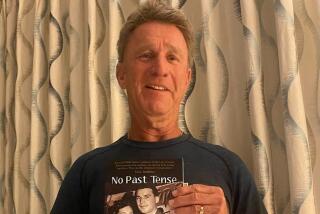Carnage Chronicle Shows Bosnia Pain
- Share via
ST. LOUIS — At the local Red Cross office, there’s a history book sent from the other side of the world. Few want to open it because the pages document a bloody chapter of history few want to revisit.
The “Book of Personal Belongings,” two volumes thick, is filled with thousands of photographs of lost possessions. Everything is soiled with dirt: clothing, jewelry, combs, Polaroids. The possessions belonged to the dead, and the dirt came from mass graves.
The book was sent to the United States in a Red Cross experiment to aid in the accounting of the 18,000 people missing from the war in Bosnia-Herzegovina during the 1990s. The Red Cross wants to see if the refugee community in St. Louis, among the largest in the United States, can help shorten the list of the missing by recognizing items in the book.
The volumes are also a test of sorts to see how willing these new Americans are to face a haunting past.
Family members look for familiar objects, personal items belonging to loved ones who have not been seen for years. On each page of the book there are four photographs showing one, two or a few objects found on a recovered body. Sometimes it’s a distinctive item of clothing. Or maybe it’s a dog-eared family snapshot, with smiling faces.
Many Bosnians have presumed their relatives are dead and have tried to move on.
“We had one man who sobbed for three hours,” said Lejla Susic, a native of Mostar, Bosnia-Herzegovina, who is now the international specialist at the St. Louis Red Cross. “Sometimes people are stoic, and other times they’re not.”
St. Louis was chosen because of the size of the Bosnian community here--an estimated 35,000 people. Hundreds of those families came from the area near Srebrenica, site of what has been called the worst massacre in Europe since World War II.
Between 7,000 and 10,000 Bosnian Muslim men were systematically killed when Serb forces overran Srebrenica in 1995. Thousands were buried in mass graves; others were left unburied. So far, the Book of Personal Belongings only includes those recovered from bodies found near Srebrenica.
To notify people about the book, the Red Cross mailed letters to Bosnians throughout St. Louis. Word of mouth has helped inform immigrants.
But few have stepped forward to look through it. Ron Klutho, a resettlement case worker who assists Bosnians in St. Louis, said many refugees have made forgetting the past a part of their adjustment to the United States. Others doubt they can truly find answers about lost relatives.
“Some of them are just not psychologically ready,” Klutho said. “There’s a strain of suspicion in them that, because of what happened, that they don’t want to trust anybody.”
Susic suspects it has more to do with her fellow Bosnians being busy in their new lives--or sometimes using their hectic schedule as an excuse to delay the discomfort.
“A lot of people are kind of swamped by the American lifestyle and they have no time,” Susic said. “Of course, they would rather work overtime and work weekends rather than come here and face the book.”
More to Read
Sign up for Essential California
The most important California stories and recommendations in your inbox every morning.
You may occasionally receive promotional content from the Los Angeles Times.













